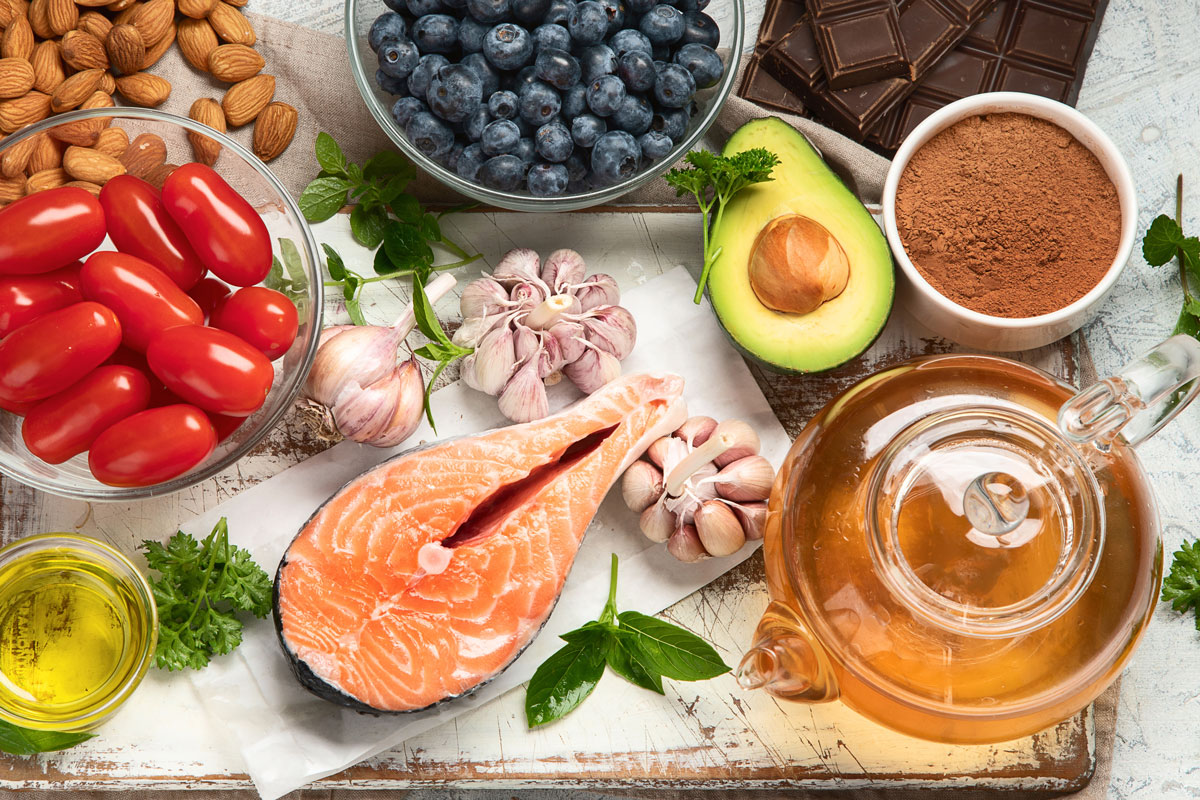Insider secrets to staying healthy at any age
Healthy Aging – 14 Ways to naturally balance your hormones for optimal wellness
It’s common knowledge that we get sicker as we get older but does it really have to be this way?
Many people think that illness and disease are inevitable parts of aging and complain of symptoms such as poor sleep, weight gain, constipation, sexual or menstrual dysfunction, thinning hair, brittle nails and skin problems that get worse as they get older.
Here’s the thing though, all of these health issues can also be seen as clues that might indicate hormonal imbalances. For example: energy and sleep problems can suggest adrenal imbalances and overall fatigue combined with constipation, thinning hair, brittle nails and weight gain can point towards thyroid hormones. These are just a few examples of how hormonal imbalances can really mess up your overall health and wellness.
First of all, what are hormones and why do they need to be balanced?
Hormones are chemical messengers that have profound effects on your mental, physical and emotional health. A hormonal imbalance can have a significant impact on mood, appetite and overall health. Aging does play a role AND there are also quite a few manageable elements that we can control.
A nutritious diet and a handful of other healthy lifestyle behaviors may help improve your hormonal health and allow you to feel and perform your best no matter how young or old you are.
Here Are 14 Ways to Balance Your Hormones Naturally
1. Eat Plenty of Protein
Many people don’t realize that getting enough protein at every meal is essential to providing amino acids that your body needs daily to maintain muscle, bone and skin health. To optimize hormone health, experts recommend consuming a minimum of 20–30 grams of protein per meal.
2. Prioritize Regular Exercise
Physical activity is one of the strongest influences on hormonal health and a major benefit of exercise is its ability to positively affect insulin levels and sensitivity. Insulin levels that are high have been linked to serious physical consequences.
The good news is that there are many types of physical activity that are beneficial and make it easy for people of all ages and health levels to enjoy. Walking, running, strength training, weight lifting, swimming are all good for you along with stretching, yoga and slow movement.
All in all, a combination of resistance and aerobic training seems to provide the best results, but engaging in any type of physical activity on a regular basis is beneficial.
3. Try to Avoid all Processed and “Junk” Foods
Eating these types of food can cause inflammation in your body and over-tax the immune, gut and endocrine systems and cutting them out of your diet will help improve hormonal health.
Processed and junk foods are also full of sugar and carbohydrates which have been linked to any number of health problems. Avoiding or minimizing foods that contain these is critically important in optimizing hormone function and avoiding chronic diseases.
By contrast, following a low- or moderate-carb diet based on whole foods may reduce insulin levels in overweight and obese people with prediabetes and other insulin-resistant conditions. Diets high in sugar and refined carbs have been shown to drive insulin resistance and avoiding these foods may decrease insulin levels and increase insulin sensitivity.
4. Manage Stress Levels
Stress seems to be everywhere lately and very difficult to avoid and unfortunately stress is really not good for you. It can weaken your immune system over time and contribute to a variety of health problems.
In fact, chronic stress can bring about elevated cortisol levels which can lead to increased calorie intake and that unwanted belly fat. And increased adrenaline levels can cause high blood pressure, rapid heart rate and anxiety.
Try to devote at least 10–15 minutes per day to stress-reducing activities: find something funny and laugh out loud, dance to a bit of music, talk to a friend, meditate, practice yoga and take a walk. All of these can help reduce stress levels in a healthy, natural way.
5. Make Sure You Get Enough Healthy Fats
Yes, there is such a good thing as high-quality natural fats that you can include in your diet to help reduce insulin resistance and appetite. Include at least one healthy fat source with each meal for optimal benefits.
One of these healthy fats are Medium-chain triglycerides (MCTs) which are unique fats that are taken up directly by the liver for immediate use as energy. MCTs are found in coconut oil, palm oil and pure MCT oil. Other sources of healthy fats are dairy fats and monounsaturated fat in olive oil and nuts.
6. Don’t Eat Too Much OR Too Little
Many people don’t realize that eating too much or too little can lead to weight problems. Your body is uniquely designed to require a specific amount of calories to function optimally.
When the amount of food is over or under what the body needs, this causes hormonal imbalances. Eating within your own personal calorie range can help you maintain hormonal balance and a healthy weight.
7. Consume Plenty of Green Tea
It’s a little known secret that green tea is one of the healthiest beverages available. It can help boost the metabolism and help regulate insulin levels.
8. Eat Plenty of Foods With Long Chain Omega-3 Fatty Acids
Research has shown that these fatty acids not only have impressive anti-inflammatory properties, they also may have a beneficial effect on hormonal health. For optimal health, include two or more servings per week of fatty fish like salmon, sardines, herring and mackerel or try fish oil supplements.
9. Make Consistent, High-Quality Sleep A Priority
Getting good, high-quality and restorative sleep is one of the best ways to keep your hormones balanced. Your brain needs uninterrupted sleep that allows it to go through all five stages of each sleep cycle and most people need at least 7 hours of high-quality sleep each night.
Make sure to avoid too much light at night before you go to bed. Exposure to blue light found in cell phones, computer screens and other electronic devices can disrupt your sleep cycles and make it difficult to get the high-quality sleep needed to keep hormones balanced.
10. Avoid Sugary Drinks
Most people know that sugar is not good for them but what they might not know is that liquid sugars are the worst. Studies have shown that sugar in beverages has the most negative effect on insulin regulation in the body.
Even worse than the hormonal effects of sugar in the body is the additional calorie intake that occurs with sugary drinks. They don’t trigger the same full feeling that an equal amount of calories in food will. So people end up consuming more calories than they need – quickly and easily.
In fact, avoiding sugar-sweetened beverages may be one of the best things you can do to improve your hormone balance.
11. Don’t Forget Your Fiber
All fiber, and especially the soluble type, is an important part of a healthy diet for all people. Fiber has been shown to help stimulate production of hormones that help you feel full and satisfied and stop eating. So getting plenty of fiber in your diet will help regulate appetite and hormones.
12. Eat Plenty of Eggs
Not only are eggs one of the most nutritious foods available, they have also been shown to help regulate the hormones that control food intake and cravings. Studies have shown that when people eat eggs in the morning they felt fuller and ate fewer calories in the next 24 hours.
Eggs are a great breakfast food and they are also helpful anytime during the day as a great stack or mini-meal along with other healthy foods.
13. Protect Your Microbiome
Make sure you feed your gut with plenty of immune boosting fermented foods and fiber that will help support good bacteria and keep the bad bacterial counts low. Doing this will help you keep your digestive system running smoothly and your hormonal functions healthy.
14. Minimize Chemicals and Medications
Continued use of over the counter and prescription drugs can stress out our bodies and throw hormones out of balance. Try to avoid or reduce your use of hormone disrupting substances and avoid as many chemicals in your environment as is possible by using natural products.
A good hormonal balance will help to ensure better health overall, at any age.
Everyone needs very specific amounts of hormones in their bodies in order to stay healthy. Hormonal imbalances increase the risk of many types of diseases and health problems.
Fortunately there are quite a few things you can do to help your hormones function optimally including nutritious meals, snacks and supplements. Getting good sleep and regular exercise will also go a long way towards improving overall health and wellness.
As always, reach out if you have any questions, comments or just want to say hello!



